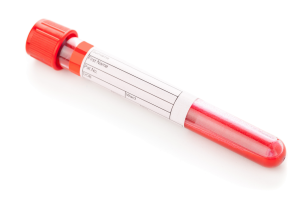22 Jun 2021
Blog post
NHS Wales offers non-invasive prenatal testing one year on from our ethics report
From Monday 30 April, pregnant women in Wales will be offered non-invasive prenatal testing (NIPT) for Down’s, Edwards’ and Patau’s syndromes as a second stage NHS screening test. Women in England will get it from October; Scottish Ministers have yet to decide whether to offer NIPT or not in Scotland.
It is just over a year ago that we were in the Houses of Parliament presenting our report on the ethics of NIPT. It was an opportunity, in rather grand surroundings, to explain the findings of our inquiry to many of the people who had contributed, and to listen to initial reactions. But this was by no means the finale of our work. Since then, we have been working to encourage decision makers to take heed of our carefully crafted recommendations. To mark the launch in Wales, here we provide an update on what has and hasn’t happened in the 12 months since we published our report.
NIPT in NHS screening
A central tenet of our report was that pregnant women and couples being offered NIPT must be provided with accurate, balanced and non-directive information about NIPT and the conditions being screened for. This is essential to help them to make genuine, informed choices.
We have been encouraged by the efforts of Public Health England in developing new written information materials and a training programme for healthcare professionals to accompany the roll-out of NIPT. A group set up by Public Health England, led by our colleague Louise Bryant, has overseen this work. The work has had the active involvement of groups that support people with Down’s syndrome and the other conditions being tested for. Screening co-ordinators from Wales have taken part in the training, but NHS Wales has produced its own information leaflet and video for women being offered screening as part of their NIPT programme, which starts on 30 April.
Producing balanced information is no easy feat. Different people will have different views on what ‘balanced’ information looks like. The important thing will be to ensure a careful evaluation takes place on whether the training and materials help pregnant women and couples feel they have made an informed decision – which is really the issue at stake here.
Supporting women after diagnosis of fetal anomaly
When a fetus is diagnosed with a genetic condition, the woman needs to be supported and given appropriate care whatever she decides to do next. If she decides to have a termination, healthcare professionals can draw on guidelines drawn up by the National Institute of Health and Care Excellence (NICE) and the Royal College of Obstetricians and Gynaecologists (RCOG) – which are in the process of being updated.
However, there are no NICE guidelines on the care of women who choose to continue their pregnancy, and the RCOG guidelines on this are sparse and buried in its document on termination of pregnancy. This, we believe, undermines the aim of supporting all choices. We have urged NICE and RCOG to rectify this as soon as possible.
Supporting and valuing disabled people
It is our view that women and couples would be better able to make genuine choices about their pregnancies if all disabled children were actively welcomed when they are born into the world and valued as equal to those without disabilities. However, recent changes to Government welfare payments have hit disabled people hard (see here and here), and many parents of disabled children report difficulties obtaining the support they need. The House of Commons Education Committee is currently exploring concerns about the quality of and access to support for children with special educational needs and disabilities.
We were heartened to see the Church of England pass a motion at its annual high-level meeting in February on the importance of valuing people with Down’s syndrome. As any parent will know, toddler groups and other community activities often take place in church facilities. Ensuring that the Church’s activities include and support people with Down’s syndrome and their families, and all disabled people, could make a real difference to people’s lives. It would be fantastic to see other religious and secular organisations make a similar commitment.
Private NIPT
Many pregnant women access NIPT through private clinics and hospitals in the UK, and this is likely to continue even after NIPT is available in the NHS. A year ago, we found that some private providers were not meeting their obligations to provide high quality information and support to pregnant women. We produced and distributed guidance on the information that companies should include on their websites and in their patient leaflets about NIPT, and suggested they seek certification from NHS England’s Information Standard scheme. However, on last check, there is still a problem. We urge the Committee of Advertising Practice to monitor more closely the marketing activities of NIPT providers.
It is a little-known fact that one-off genetic testing performed by private clinics is not a regulated activity overseen by the Care Quality Commission (CQC). This means that no one is checking that the private provision of NIPT (or any one-off genetic testing) in England is being carried out to high standards of quality and safety. This might explain why some clinics are offering NIPT for sex aneuploidy and microdeletion conditions, where the likelihood of receiving a false positive result is very high, or unknown. We know of women who have had distressing ‘high chance’ results for these conditions, only to find out that these results are very unreliable. A lack of regulation also means women can access NIPT directly through the internet, without access to a healthcare professional. We are pushing for change.
Most private providers of NIPT offer fetal sex determination. Our report discussed the concern that revealing fetal sex at an early stage of pregnancy could increase the risk of terminations on the basis of sex taking place. However, there is a lack of evidence about the extent to which sex selective terminations are happening in the UK – particularly since NIPT became available in 2012. We are delighted that Sylvie Dubuc at Reading University has been awarded a major grant to explore the evidence, causes and trends of son preference and sex selection against females in the UK. The project runs until 2020.
NIPD and whole genome sequencing
In future, it is highly likely that NIPT will be used to test fetuses for a wider range of genetic conditions. For people who have a family history of genetic disease, or who have a fetus with suspected genetic disease, NIPT can offer information and choice at an early stage of pregnancy, without the need for an invasive test. NIPT is often called NIPD when used in this context – the ‘D’ standing for diagnostic.
Research on the potential of NIPD continues at pace (see this article for an overview). The potential of fetal whole genome or exome sequencing is being explored. The PAGE study is recruiting 1000 families for fetal whole exome and genome sequencing at hospitals around the UK. The project is considering ethical issues such as how best to ask for parental consent, and how to deal with unexpected, secondary findings. There is also the general concern about how to understand and act on a much more extensive set of information about the fetus. At an ethics conference in February organised as part of the project, there was broad support for the development of UK-specific professional guidelines on prenatal genome sequencing – echoing our call for guidance on the provision of NIPT/D in the UK. In the PAGE project, genetic testing is carried out using invasive methods, because it is not (yet) easy to do whole genome sequencing using NIPT/D. But the outcomes will be relevant for prenatal genome sequencing by any method.
Future screening programmes
Responding to our recommendations and those of other bodies, the UK National Screening Committee is taking steps to improve the way it considers the ethical issues raised by screening. It has set up an Ethics Task Group to develop a methodology for flagging and considering ethical issues, and an additional member with ethics expertise has been recruited to the main Committee. Our hope is that important lessons have been learned from the public debate ignited by Committee’s approval of NIPT for Down’s syndrome screening.
To inform future decisions about screening, good data needs to be collected and published from all regions of the UK on the outcomes after recent changes to the prenatal screening programme, in relation to informed consent, termination of pregnancies, and births of children with Down’s syndrome and other conditions. It would also be helpful if better information were available on outcomes for people with Down’s syndrome and other conditions, to give pregnant women a clearer idea of what to expect from a life with a child or adult with one of the conditions.>
What now
A year is not a long time when you’re trying to do the not-inconsiderable job of helping influence medical practice, government policy and public attitudes! We have seen some promising developments over the past 12 months, but there is plenty more to do. To everyone who has helped us over the course of our inquiry and beyond, we look forward to working with you further, and continuing this important discussion.


Comments (3)
A Genomics Expert
This discussion touches on the core concerns underlying genomic testing, which needless to say, is extremely controversial. For example in Iceland, the government claims to have eradicated trisomy through their prenatal screening programs. Some would see this as a miraculous achievement, others as a demonization of trisomy. What's important to remember is that the decision to offer this test to the public was made to empower mothers and fathers with a choice they would otherwise not have. A choice that could potentially improve their quality of life and general health. This goes both ways. How each individual interprets that definition is arbitrary.
Jane Thomas
Having had a t13 baby I'm considering this test for current pregnancy. Its terrifying. I would like to see results choices- I personally would prefer not to know if my child had downes (as my & husbands opinion on this differs) butter peace of mind want to test for t13/18 which are life limiting/incompatible with life
Nonn Hughes Evans
So very sad to read this. No one has consulted myself, or any of my friends who have Down Syndrome sons and daughters, so where did the evidence come from? I would probably/possibly have chosen to have a termination before my son's birth, thank God I did not as he has brought so much joy and even meaning into our lives. He has taught me so much and made me a better, nicer but stronger human being. How very, very sad that it will be so much easier to delete many more of these wonderful human beings from our culture.
Join the conversation